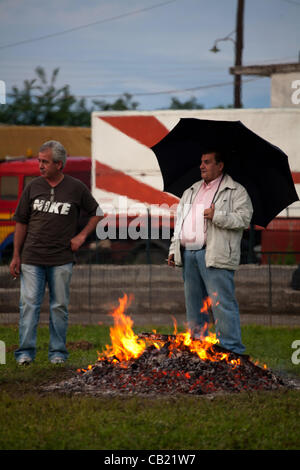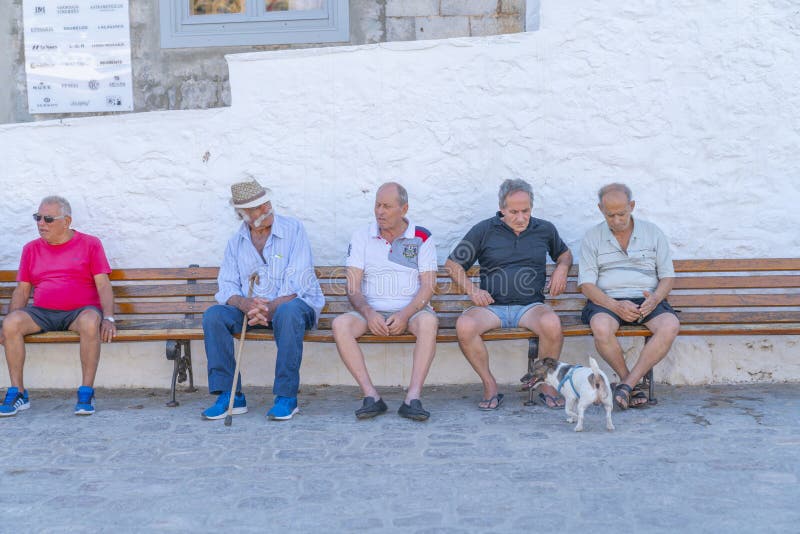


“It enables us to worship Almighty God, to support each other on our journey of faith, and to be a visible sign of faith in the world. “The Eucharist makes the Church, and the Church makes the Eucharist,” they wrote, channelling John Paul II’s Ecclesia de Eucharistia of 2003. Instead, their statement relied, appropriately enough, on a high theology of the nature and duties of the company of the redeemed. For many this will be music to the ear, although of course the bishops were not necessarily seeking to implement a coherent anthropological strategy. The only time the congregation is truly a community is when they collectively partake in the same liturgical rites,” Dr Xygalatas said.

“From an anthropological perspective, one might even go as far to say that any community is truly a community only during the performance of those group rituals. This may seem an obvious point, but the pandemic and various restrictions may have skewed our ability to see the wood for the trees. “Without them, some people might still be able to find spirituality, but unless they observe those repetitive liturgical traditions as a collective, they will not feel like a true community.” On the bishops’ insistence that tuning-in online would not fulfil the obligation, Dr Xygalatas observed that his recent research had shown that “in-person participation in ritualised collective gatherings (even secular ones, like sports games) provides participants with a much more meaningful experience compared to attending the same event virtually, and that this leads to stronger affiliation with their group”. “Regular ceremonial gatherings are fundamental to any religious community,” he said. “Speaking as an anthropologist of ritual, even without any theological perspective, I think that this is a wise move,” he replied. With that in mind, I asked Dr Xygalatas what he made of the decision of the bishops of England & Wales to restore the obligation of attendance at Mass on Sundays and other holy days at Pentecost. They all matter.Ĭommunity ritual particularly matters, for those rites which communities observe together speak of communion in a profound and particular way. Among them are the Greek rites celebrated by the Ukrainian Catholic Church, of which for painful reasons people have recently become more aware. As the Archbishop of Sydney, the Most Revd Anthony Fisher OP, pointed out in its wake, there are six normative rites celebrated across the Western Church by Christians in communion with the Holy See. The Novus Ordo and the Tridentine Rite both matter if they did not, then there would not have been such strength of feeling expressed after Pope Francis issued the controversial Traditionis custodes a year ago this month. Ritual even matters, whether they know it or not, to those who have lost their faith, for whom there survive glimpses of home and hope as the Blessed Sacrament passes by at Corpus Christi, born aloft amid clouds of incense, fluttering rose-petals and the tinkling of bells. Ritual matters to the little boy preparing for his First Holy Communion it matters, too, to the elderly woman stricken with dementia, still able to tell her beads as her world slowly closes in. From the early-morning Rorate Masses in Advent to Midnight Mass at Christmas from the imposition of ashes at the start of Lent to Vidi Aquam at Easter from the daily recitation of the rosary to the Stations of the Cross on Fridays from the morning and evening offices of the secular clergy, and the sevenfold offering of the cloister none of this is accidental. Ritual of all kinds involves a certain amount of blurring at the edges: we only have to think of Easter’s relationship with Passover, or the appropriation of Saturnalia by Christmas.Ĭlearly the Church cares about ritual. He is an authority on the Anastenaria – the fire-walking festivals which either have their origins in pious medieval legend or may instead be Christianised vestiges of the cult of Dionysus – and wrote about them in depth in The Burning Saints. Much of Dr Xygalatas’s work focuses on religious ritual in particular he emphasises various rites and ceremonies of the Greek Orthodox Church. By engaging with what Dr Xygalatas calls “all the bewildering variety of human life”, Ritual teases out “the deep and subtle mechanisms that soothe, excite, divide and unite us”. It seeks to answer some basic human questions about “ceremonies pervade every documented society”.

Ritual: How Seemingly Senseless Acts Make Life Worth Living is the latest ethnographic offering of Dimitris Xygalatas, an anthropologist and cognitive scientist based at the University of Connecticut.


 0 kommentar(er)
0 kommentar(er)
